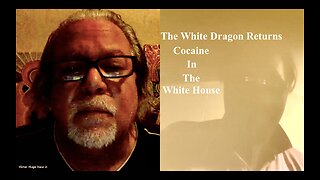White Psychopaths in Haití, Sugar was The First Fentanyl
As Haití Burns, Never Forget: Whites/Arabs Did That
When comparing them side-by-side, the story of the American Revolution ain’t got shit on the history of Haití.
For Afrikan people, Haiti represents the most beautiful story of strength, resistance and freedom that has ever been told. It is the story of a people who thrust off the chains of bondage and took their liberty from the hands of their oppressors.
But when discussing anything having to do with the country of Haiti, we should never forget that every bit of struggle in Haiti is related to the legacy of slavery, capitalism and American hypocrisy.
As unrest envelops Haiti once again, it is important for us to remember that Haiti suffers from a worldwide collusion between America and European countries intent on making the tropical paradise suffer.
To blame Haiti’s problems on white people is not a harebrained hypothesis. It is an unbelievably treacherous fact that it often sounds like a kooky conspiracy theory.
Yes, Haiti is poor. Yes, there is widespread government corruption in the country. But there is also one other unignorable fact:
White people did this.
“In fourteen hundred ninety-two, Columbus sailed the ocean blue.”
Christopher Columbus never set foot on North American soil. While there is some debate about where he first landed in the Caribbean (partly because he was a terrible navigator), we know he arrived on the island of Hispaniola on December 5, 1492.
In A Pest in the Land: New World Epidemics in a Global Perspective, Suzanne Alton writes that most historians estimate the population of the Island of Hispaniola was around 500,000 to one million people when Columbus’ fleet arrived. Columbus immediately took possession of the island, began redirecting the native Taino people’s food and resources to the Europeans, began enslaving the natives and killing the population with disease and brutality that it is described as “surely the greatest tragedy in the history of the human species.”
25 years after Columbus set foot in the place we now call Haiti, less than 14,000 Taino were alive. So the Spanish began importing slaves, believing them to be more sturdy workers. By the time the French took control of 2/3rds of the island and established the colony of French Santo Domingo (or Saint-Domingue), there were zero natives, 25,000 Europeans, 22,000 free coloreds and 700,000 African slaves, according to the 1788 French Census.
The world had changed by then. A revolution was happening in France. North of the island, there was a brand new country called the United States of America. Thomas Paine, an American, had also written a book titled The Rights of Man asserting that freedom was a universal right that all human beings deserved.
Toussaint Louverture, an Afrikan resident of the French colony, inspired by Paine’s book and the stories of the American and French revolutions, led a slave revolt that took control of France’s mostly black, Caribbean paradise.
But France, lusting for a new colony for whites (like the United States) and led by the greatest European warrior in the world, sent an army to capture Louverture and crush the slave rebellion.
The colonizing army was well-trained, more experienced and better-financed than this group of slave rebellers. They figured conquering the rebellion would be light work.
The slaves kicked Napolean Bonaparte’s ass.
Gen. Jean-Jacques Dessalines proclaimed victory and ordered the slaves to destroy any Frenchman who remained on the island, announcing: “We have repaid these cannibals, war for war, crime for crime, outrage for outrage.”
The citizens of the newly freed country would forever remember the history of their brutal oppression at the hands of Europeans. They even tossed the Spanish and French names for their country and renamed it in the language of the now-extinct Taino people. Since that day, a white man has never ruled the place we now call “Haiti.”
America hates Haiti.
White people around the globe hate Haiti.
To be fair, not all white people think of Haiti as a “shithole country.” Polish soldiers who went to fight against the uprising in Haiti refused to lay a hand on Haiti’s black slave rebellers. When the revolutionaries destroyed the white colonizers, they spared the Polish inhabitants on the island.
The reason Haiti is impoverished is mostly America and France’s fault. They did this while the rest of the European powers watched quietly. So no, not all white people destroyed Haiti. Just some white people.
Mostly America.
Which is enough.
Understanding what America and France, two of the most powerful countries in the world, did to Haiti requires a suspension of disbelief because it is so insane that it sounds like fiction. But it is a historical fact that France’s and the United States’ approach to Haiti would devastate the Haitian economy, thrusting Haiti into a poverty that would last to this very day.
Haiti is poor because America and France instituted the most racist economic foreign policy that ever existed.
Not even two decades after Haiti gained its independence, France demanded that Haiti compensate former French slaveowners for the value of all those slaves who set themselves free. Yes, France and the land of the free, home of the brave, essentially demanded reverse slave reparations.
In 1825, France sent warships to Haiti and demanded 150 million Francs. Not only did the United States agree, but they backed up France’s demands for the debt on the international stage, imploring European countries to ignore Haiti’s existence until it paid this money.
A Historical Account of the Black Empire of Hayti
Contents.
A SUCCINCT historical View of the Colonies of Hispaniola and St. Domingo,
from the Discovery of Hayti, by Columbus, to the Height of their
Prosperity in 1789 15–69
Origin of the Revolutionary Spirit of this Period in
St. Domingo 69–77
Account of the Progress and Accomplishment of the Independence
of St. Domingo 77–132
State of Manners on the Independence of the Blacks in St. Domingo,
with a Memoir of the Circumstances of the Author’s Visit to
the Island in 1799 132–148
View of the Black Army, and of the War between the French Republic and
the independent Blacks of St. Domingo 148–216
On the Establishment of a Black Empire, and the probable Effects of
the Colonial Revolution 216–218
Blake—and his wife Cotto. They are buried in the cemetery of Shepperton, near
Walton-on-Thames, Middlesex, England. The entire epitaph is quoted in the Gentle-
Bibliography
Account Book of the Deputy Paymaster General, Hispaniola, 1796–77. National Library of Jamaica, Kingston.
Adanson, Michel. Histoire naturelle du Sénégal. Coquillages. Avec la relation abrégée d’uvoyage fait en ce pays pendant les années 1749, 50, 51, 52 et 53. Paris: Bauche, 1757.
Almanack and Register for the Island of Jamaica. Kingston, 1782.
Alumni Dublinesis: A Register of the Students, Graduates, Professors, and Provosts of Trinity
College in the University of Dublin. Dublin: A. Thom, 1935.
Anderson, Adam. An historical and chronological deduction of the origin of commerce
from the earliest accounts to the present time, containing an history of the great com-
mercial interests of the British empire. London: Millar, 1764.
Anderson, James. A Few Facts and Observations on the Yellow Fever of the West Indies.
Manchester: Harrop, 1799.
The Annual Register. London, 1791–1804.
The Annual Review; and History of Literature. London: Longman and Rees, 1803.
The Anti- Jacobin Review and Political Magazine. London, 1806.
Archenholz, Johann Wilhelm von. Geschichte der Flibustier. Tübingen, 1803.
———, ed. Minerva. Jena, 1802, 1806.
Ardouin, Beaubrun. Etudes sur l’histoire d’Haïti. 11 vols. Paris: Dézobry et Magdeleine,
1853–60.
Barbot, Jean. A Description of the Coasts of North and South Guinea and of Ethiopia In-
ferior, vulgarly Angola. In Collection of Voyages and Travels, ed. Thomas Astley and
J. Churchill. 5 vols. London, 1732.
Barthelemy, Anthony Gerard. Black Face, Maligned Race: The Representation of Blacks
in English Drama from Shakespeare to Southerne. Baton Rouge: Louisiana State Uni-
versity Press, 1987.
Beard, John Relly. Toussaint L’Ouverture: A Biography and Autobiography. Boston: James
Redpath, 1863.
Bell, Madison Smartt. Toussaint Louverture: A Biography. New York: Pantheon, 2007.
Benezet, Anthony. Some historical account of Guinea, its situation, produce, and the gen-
eral disposition of its inhabitants. 1771. London: Owen, 1772.
Benzoni, Girolamo. Historia del Mondo Nuovo. Venice, 1565.
Bercy, Drouin de. De Saint-Domingue: de ses guerres, de ses révolutions, de ses ressources,
et des moyens à prendre pour y rétablir la paix et l’industrie. Paris: Hocquet, 1814.
Bernheim, Alain. “Le ‘Bicentenaire’ des Grandes Constitutions de 1786: Essai sur les
cinq textes de référence historique du Rite Écossais Ancien et Accepté,” part I,
Renaissance Traditionnelle 68 (1986): 241–63; part II, Renaissance Traditionnelle 69
(1987): 29–80; part III, Renaissance Traditionnelle 70 (1987): 99–138.
Bibliographie de la France: ou Journal général de l’imprimerie et de la librairie. Paris, 1829.
bibliogrAPhY 323
Charmilly, P. F. Venault de. Lettre à M. Bryan Edwards, en Réfutation de son Ouvrage in-
titulé Vues Historiques sur La Colonie Française de St. Domingue, &c. London, 1797.
Chartrand, René, and Francis Back. Napoleon’s Overseas Army. London: Osprey, 1989.
Chartrand, René, and Paul Chappell. British Forces in the West Indies, 1793–1815. Lon-
don: Osprey, 1996.
Chateaubriand, François-René de. Mémoires d’Outre-Tombe. 42 vols. Paris, 1849–50.
[Chesterfield, Philip Dormer Stanhope, Lord]. Preface. Love Elegies by James Ham-
mond. Dublin: J. Potts and S. Watson, 1742. iii–iv.
Clark, James. A Treatise on the Yellow Fever as it Appeared in the Island of Dominica in the
Years 1793–4–5–6. London: J. Murray and S. Highley, 1797.
Clark, Murtie June. Loyalists in the Southern Campaign of the Revolutionary War. Balti-
more: Genealogical Publishing, 1981.
Clavin, Matthew. “Race, Rebellion, and the Gothic: Inventing the Haitian Revolu-
tion.” Early American Studies 5.1 (2007): 1–29.
———. Toussaint Louverture and the American Civil War: The Promise and Peril of a
Second Haitian Revolution. Philadelphia: University of Pennsylvania Press, 2009.
Cobbett’s Weekly Political Register. London, 1802–4.
Colquhoun, Patrick. Treatise on the Police of the Metropolis. London: H. Fry, 1796.
Cook, James. A Voyage to the Pacific Ocean. 3 vols. London: Strahan, 1784.
Coulon, Jean Philippe Garran de. Rapport sur les Troubles de Saint- Domingue. 4 vols.
Paris: 1797–99.
Crissé, Lancelot Turpin de. Commentaires de César, avec notes historiques, critiques et
militaires. 3 vols. Paris, 1785.
The Critical Review; Or, Annals of Literature. London: J. Mawman, 1801, 1806.
Curran, Stuart. Poetic Form and British Romanticism. Oxford: Oxford University Press,
1986.
Daguillard, Fritz. Enigmatic in His Glory: Toussaint Louverture (1743–1803). Port-au-
Prince: Musée du Panthéon Nationale Haïtien, 2003.
Dallas, R. C. The History of the Maroons, from their Origin to the Establishment of their
Chief Tribe at Sierra Leone. 2 vols. London: Longman and Rees, 1803.
Décret de l’Assemblée Générale de Saint-Domingue, rendu le 28 mai 1790, à l’unanimité; et
développement de ce décret par l’assemblée aux observations sur ce décret par l’assem-
blée provinciale du Nord, en date de 1er juin. Paris, 1790.
Desclaisons, M. Précis des histoires d’Alexandre le Grand et de Jules César, et de leurs faits
militaires, soit comparés soit opposés entre eux; suivi de différents points de comparai-
son ou opposition entre ces deux généraux. 2 vols. Paris, 1784.
Doyle, Arthur. A Hundred Years of Conflict: Being some Records of the Services of Six Gen-
erals of the Doyle Family, 1756–1856. London: Longmans, Green, 1911.
Dubois, Laurent. Avengers of the New World: The Story of the Haitian Revolution. Cam-
bridge: Harvard University Press, 2004.
Dubroca, [Jean-Louis]. The Life of Toussaint Louverture, Chief of the French Rebels in St.
Domingo. Translated from the French. London: H. D. Symonds, 1802.
Duffy, Michael. Soldiers, Sugar, and Seapower: The British Expeditions to the West Indies
and the War against Revolutionary France. Oxford: Clarendon, 1987.
Dunn, Richard S. Sugar and Slaves: the Rise of the Planter Class in the British West Indies,
324 bibliogrAPhY
1624–1713. 2d ed. Chapel Hill: Omohundro Institute of Early American History and
Culture and University of North Carolina Press, 2000.
Du Tertre [Jean-Baptiste]. Histoire générale des Antilles habitées par les François. 4 vols.
Paris: Thomas Iolly, 1667–71.
Echard, Laurence. The History of the Revolution and the Establishment of England in the
Year 1688. London: Hyde and Dobson, 1725.
The Eclectic Review. London: C. Taylor, 1806.
The Edinburgh Review. Edinburgh, 1806.
Edwards, Bryan. An Historical Survey of the French Colony in the Island of St. Domingo.
London: Stockdale, 1797.
———. The History, Civil and Commercial, of the British Colonies in the West Indies. 3d
ed. 3 vols. London: Stockdale, 1801.
Emerson, William K. Chevrons: Catalog of U.S. Army Insignia. Washington: Smithsonian
Institution Press, 1983.
Estimates and Accounts: Army; Navy; Ordnance; Civil List; Miscellaneous Services. Vol.
13. London, 1818.
An Exhibition of miniatures owned in South Carolina and miniatures of South Carolinians
owned elsewhere painted before the year 1860. Charleston: Carolina Art Association,
Gibbes Memorial Art Gallery, 1936.
Fick, Carolyn E. The Making of Haiti: The Saint Domingue Revolution from Below. Knox-
ville: University of Tennessee Press, 1990.
Fischer, Sibylle. Modernity Disavowed: Haiti and the Cultures of Slavery in the Age of
Revolution. Durham: Duke University Press, 2004.
Fortescue, J. W. A History of the British Army. 4 vols. London: Macmillan, 1910–30.
Fouchard, Jean. Le Théâtre à Saint-Domingue. Port au Prince: Editions Henri Des-
champs, 1988.
Friday’s Post Ipswich Journal. London, 1802.
Gazette Nationale, ou Le Moniteur Universel. Paris, 1791–1805.
Gazette Officielle de Saint-Domingue. Port-au-Prince.
Gazzetta di Milano. Milan, June 26, 1816.
Geggus, David Patrick. “The Arming of Slaves in the Haitian Revolution.” In Arming
Slaves: From Classical Times to the Modern Age, ed. Christopher Leslie Brown and
Philip D. Morgan. New Haven: Yale University Press. 209–32.
———. “British Opinion and the Emergence of Haiti, 1791–1805.” In Slavery and
British Society 1776–1846, ed. James Walvin. Baton Rouge: Louisiana State
University Press. 123–49.
———. “The Cost of Pitt’s Caribbean Campaigns, 1793–1798.” Historical Journal 26.3
(1983): 699–706.
———. “The Great Powers and the Haitian Revolution.” In Haitian Revolutionary
Studies, 171–78.
———. Haitian Revolutionary Studies. Bloomington: Indiana University Press, 2002.
———. Slavery, War, and Revolution: The British Occupation of Saint Domingue, 1793–
1798. Oxford: Clarendon, 1982.
———. “Slave, Soldier, Rebel: The Strange Career of Jean Kina.” In Haitian Revolu-
tionary Studies, 137–51.
bibliogrAPhY 325
———. “The ‘Volte-Face’ of Toussaint Louverture.” In Haitian Revolutionary Studies,
119–36.
The Gentleman’s Magazine. London: Nichols and Son, 1806.
Goldsmith, Oliver. “The Traveler.” In The Poetical Works of Dr. Goldsmith. London:
Osborne and Griffin, 1785.
Gómara, Francisco López de. La Historia general de las Indias. Saragossa, 1552.
Göttlingische gelehrte Anzeigen. Göttingen, 1802.
Gray, Thomas. “Ode on the Spring.” In The Poetical Works of Thomas Gray, LL. B. Lon-
don: Scatcherd, 1799.
Grégoire [Henri]. Lettre aux citoyens de couleur et nègres libres de Saint-Domingue, et
autres isles françoises de l’Amérique. Paris: imprimerie du patriote français, 1791.
———. De la littérature des nègres, ou Recherches sur leurs facultés intellectuelles, leurs
qualités morales et leur littérature. Paris, 1808.
Guichard, Karl Gottlieb. Mémoires militaires sur les Grecs et les Romains. The Hague,
1757.
Hakluyt, Richard. Diverse Voyages Touching the Discoverie of America. London, 1582.
Hayley, William. An Essay on Epic Poetry: in five Epistles to the Revd. Mr. Mason. Lon-
don: J. Dodsley, 1782.
———. The Life of Milton, in three parts. 2d ed. London: Cadell and Davies, 1796.
[Henry I of Haiti]. Manifeste du Roi. Cap Henry: P. Roux, 1814.
Herodotus. The Landmark Herodotus. Robert B. Strassler, ed. Andrea L. Purvis, trans.
New York: Pantheon, 2007.
Herrera y Tordesillas, Antonio de. Historia general de los hechos de los Castellanos en las
islas y tierra firme del Mar Oceano. 1601–15.
Histoire Générale des Voyages. 15 vols. Paris: Didot, 1697–1763.
Howard, Thomas Phipps. The Haitian Journal of Lieutenant Howard, York Hussars, 1796–
1798. Roger Norman Buckley, ed. Knoxville: University of Tennessee Press, 1985.
Hughes, Derek, ed. Versions of Blackness: Key Texts on Blackness from the Seventeenth
Century. Cambridge: Cambridge University Press, 2007.
Hume, David. A History of England from the Invasion of Julius Caesar to the Revolution in
1688. 6 vols. London: T. Cadell, 1762.
An Inquiry into the Causes of the Insurrection of the Negroes in St. Domingo, to which are
added Observations of M. Garran-Coulon on the Same Subject. London: J. Johnson,
1792.
James, C. L. R. The Black Jacobins. 2d ed. New York: Vintage, 1989.
Kay, John. A Series of Original Portraits and Caricature Etchings. With Biographical
Sketches and Illustrative Anecdotes. Edinburgh: A & C Black, 1877.
Labat, Jean-Baptiste. Nouveau voyage aux isles de l’Amérique. 6 vols. Paris, 1722.
Lacroix, Pamphile de. Mémoires pour servir à l’histoire de la révolution de Saint-
Domingue. 2 vols. Paris: Pillet Aîné, 1819.
Larwood, Joshua. Erratics: by a sailor; containing rambles in Norfolk, and elsewhere.
2 vols. London, 1800.
Las Casas, Bartolomé de. A Short Account of the Destruction of the Indies, 1552.
Las Cases, Emmanuel-Auguste- Dieudonné de. The Life, Exile, and Conversations of the
Emperor Napoleon. 2 vols. London: Henry Colburn, 1835.
326 bibliogrAPhY
Laurie, William Alexander. The History of Free Masonry and the Grand Lodge of Scotland.
Edinburgh: Seton and Mackenzie, 1859.
Le Beau, Charles. Histoire de l’Académie royale des inscriptions et belles-lettres, avec les
mémoires de littérature. Vols. 25–39. Paris, 1759–77.
Ledyard, John. “Eulogium.” Proceedings of the Association for Promoting the Discovery of
the Interior Parts of Africa, 1788–1790. London: T. Cadell, 1791.
———. A Journal of Captain Cook’s Last Voyage to the Pacific Ocean. London, 1783.
Leslie, Charles. A New History of Jamaica. London: J. Hodges, 1740.
[Lloyd, Henry]. The History of the Late War in Germany; Between the King of Prussia, and
the Empress of Germany and her Allies. London, 1766.
The London Gazette. London, 1813.
London Metropolitan Archives. Saint Giles in the Fields: Saint Giles High Street, Hol-
born, Camden. Transcript of Burials, January–December 1817. dl/t Item 036/029,
dl/t/036/029.
Long, Edward. The History of Jamaica; Or, General Survey of the Antient and Modern State
of that Island. 3 vols. London: T. Lowndes, 1774.
Madiou, Thomas, fils. Histoire d’Haïti, 8 vols. Port-au- Prince: Courtois, 1848.
Malenfant, Colonel. Des colonies, et particulièrement de celle de Saint-Domingue: Mé-
moire historique et politique. Paris: Audibert, 1814.
Malouet, Victor Pierre. Collection de mémoires et correspondances officielles sur l’ad-
ministration des colonies et notamment sur la Guiane française et hollandaise. 5 vols.
Paris, 1802.
[Malthus, Thomas]. An Essay on the Principle of Population. London: J. Johnson, 1798.
Martyr, Peter (Martire d’Anghiera, Pietro). De Orbe Novo, 1530.
Métral, Antoine, and Isaac Louverture. Histoire de l’expédition des français à Saint-
Domingue sous le consulat de Napoléon Bonaparte; suivie des Mémoires et Notes
d’Isaac Louverture. Paris: Fanjat Aîné, 1825.
Mintz, Sidney Wilfred. Sweetness and Power: The Place of Sugar in Modern History. New
York: Viking, 1985.
The Monthly Mirror: Reflecting Men and Manners. London, 1802.
The Monthly Review; Or, Literary Journal. London, 1801.
Moseley, Benjamin. Medical Tracts. 2d ed. London: T. Cadell, Jr., and W. Davies, 1800.
———. A Treatise on Sugar. London: C. G. and J. Robinson, 1800.
The New Annual Register; Or, General Repository of History, Politics, and Literature. Lon-
don: Stockdale, 1806.
Nussbaum, Felicity. The Limits of the Human: Fictions of Anomaly, Race, and Gender in
the Long Eighteenth Century. Cambridge: Cambridge University Press, 2003.
[Ogden, James]. The Revolution: An Epic Poem, in Twelve Books. London: J. Johnson,
1790.
Orléans, Pierre Joseph d’. Histoire des révolutions d’Angleterre depuis le commencement
de la monarchie. Paris, 1689.
———. Histoire des révolutions d’Espagne, depuis la destruction de l’empire des Goths,
jusqu’à l’entière et parfaite réunion des royaumes de Castille et d’Aragon en une seule
monarchie. 3 vols. Paris, 1734.
Oviedo [Gonzalo Fernández de Oviedo y Valdés]. La historia general y natural de las
Indias. Toledo, 1526–35.
bibliogrAPhY 327
Pachonski, Jan, and Reuel K. Wilson. Poland’s Caribbean Tragedy: A Study of Polish
Legions in the Haitian War of Independence 1802–1803. Boulder: East European
Monographs, 1986.
Paquin, Lyonel. The Haitians: Class and Color Politics. Brooklyn, NY: Multi-Type, 1983.
A Particular Account of the Commencement and Progress of the Insurrection of the Negroes
in St. Domingo, which began in August 1791. 2d ed. London: J. Sewell, 1792.
Piecuch, Jim. Loyalists, Indians, and Slaves in the Revolutionary South, 1775–1782.
Columbia: University of South Carolina Press, 2008.
Pierrot, Grégory. “‘Our Hero’: Toussaint Louverture in British Representations.” Criti-
cism 50.4 (2008): 581–607.
Pincus, Steve. 1688: The First Modern Revolution. New Haven: Yale University Press,
2009.
Pluchon, Pierre. Toussaint Louverture: un révolutionnaire noir de l’Ancien Régime. Paris:
Fayard, 1989.
Pocock, Michael Rogers. Out of the Shadows of the Past: The Story of the Great House of
Champs Elysées, Maraval, and an Account of the Families who lived in it, 1780–1932.
Port of Spain: Paria Publishing, 1993.
Pope, Alexander. An Essay on Man. In Epistles to a Friend. Epistle I. London: 1733.
———. “Prologue.” In Cato, by Joseph Addison. 1713. London: Longman, Lowndes,
Bladon, Cadell et al. 1795.
———. “Sappho to Phaon: From the Fifteenth of Ovid’s Epistles.” In The Major
Works, by Alexander Pope. Oxford: Oxford University Press, 2009.
Postlethwayt, Malachy. The Universal Dictionary of Trade and Commerce. London:
J. Knapton, 1757.
Pulis, John W. “Bridging Troubled Waters: Moses Baker, George Liele, and the African
American Diaspora to Jamaica.” In Moving On: Black Loyalists in the Afro-Atlantic
World, ed. John W. Pulis. New York: Garland, 1999. 183–222.
Rainsford, Captain [Marcus]. A Memoir of Transactions That Took Place in St. Domingo
in the Spring of 1799. London: R. B. Scott, 1802.
Rainsford, Marcus. Geschichte der Insel Hayti: Oder, St. Domingo besonders des auf der-
selben errichteten Negerreichs. Trans. Doctor Levi and Posstefretär Roch. Hamburg:
A. Schmidt, 1806.
———. An Historical Account of the Black Empire of Hayti: Comprehending a View of the
Principal Transactions in the Revolution of Saint Domingo; with its Antient and Modern
State. London: Cundee, 1805.
———. St. Domingo, of het land der Zwarten in Hayti en deszelfs Omwenteling. 2 vols.
Amsterdam: Johannes Allart, 1806.
———. St. Domingo; Or, an Historical, Political and Military Sketch of the Black Repub-
lic. 2d ed. London: R. B. Scott, 1802.
———. St. Domingo; Or, an Historical, Political and Military Sketch of the Projected
Black Republic. 3d ed. London: R. B. Scott, 1802.
———. Translation of an Official Communication from the Government of Hayti. Bristol:
John Evans, 1816.
[Rainsford, Marcus]. An Hymeneal on the Marriage of the Right Hon. Francis, Earl of
Moira, etc. etc. etc., to the Right Hon. Flora, Countess of Loudon; on the 12th Day of July,
1804. London: Isaac Bisset, 1804.
328 bibliogrAPhY
———. The Revolution; Or, Britain Delivered: A Poem in Twelve Cantos, with Notes His-
torical and Explanatory. Edinburgh: Creech; and London: Cadell, 1791.
———. The Revolution; Or, Britain Delivered: A Poem in Ten Cantos. 2d ed. London:
R. B. Scott, 1800.
Raynal, Guillaume Thomas François. A Philosophical and Political History of the Settle-
ments and Trade of the Europeans in the East and West Indies. Trans. J. Justamond.
5 vols. 2d ed. London: T. Cadell, 1776.
Robertson, William. The History of America. 3 vols. 6th ed. London: Strahan and
Cadell, 1792.
Roussier, Michel. “L’éducation des enfants de Toussaint Louverture et l’Institution
nationale des colonies.” In Toussaint Louverture et l’indépendance d’Haïti: Témoig-
nages pour un bicentenaire, ed. Jacques de Cauna. Paris: Editions Karthala, 2004.
Saint-Rémy, Joseph. Mémoires du Général Toussaint-L’Ouverture, écrits par lui-même,
pouvant servir à l’histoire de sa vie. Paris: Pagnerre, 1853.
———. Vie de Toussaint-L’Ouverture. Paris: Moquet, 1850.
Saxe, Maurice de. Mes Rêveries. Paris, 1757.
Scott, David. Conscripts of Modernity: The Tragedy of Colonial Enlightenment. Durham:
Duke University Press, 2004.
Shakespeare, William. Complete Works. New York: Modern Library, 2007.
Slatta, Richard W., and Jane Lucas de Grummond. Simon Bolivar’s Quest for Glory. Col-
lege Station: Texas A&m University Press, 2003.
Sloane, Hans. A Voyage to the Islands Madera, Barbados, Nieves, S. Christophers and
Jamaica, with the Natural History of the Herbs and Trees, Four-footed Beasts, Fishes,
Birds, Insects, Reptiles, &c. Of the last of those islands. 2 vols. London, 1707–25.
Smith, William. A New Voyage to Guinea. London, 1744.
Stephen, James. The Crisis in the Sugar Colonies. London, 1802.
[Stephen, James]. Buonaparte in the West Indies; or, the History of Toussaint Louverture,
the African Hero. London: J. Hatchard, 1803.
———. The Opportunity; Or, Reasons for an Immediate Alliance with St. Domingo. Lon-
don: Hatchard, 1804.
The Times of London. London, 1790–1820.
Tomlinson, Robert. An Attempt to rescue the Holy Scriptures from the Ridicule they incur,
with the Inconsiderate, occasioned by Incorrect Translation. London: Baynes, 1804.
Trouillot, Hénock. Le gouvernement du roi Henri Christophe. Port-au-Prince: Impri-
merie Centrale, 1972.
Trouillot, Michel-Rolph. Silencing the Past: Power and the Production of History. Bos-
ton: Beacon, 1997.
Tyson, George F. Toussaint L’Ouverture. Englewood Cliffs: Prentice Hall, 1973.
Tytler, James. A Treatise on the Plague and Yellow Fever. Salem, Mass.: Joshua Cushing
for B. B. Macanulty, 1799.
United Kingdom. The National Archives. Admiralty and Secretariat Papers.
———. Records of the Colonial Office.
———. Records of the Prerogative Court of Canterbury.
———. Records of the War Office.
Vegetius, Flavius. Vegetius: Epitome of Military Science. N. P. Milner, ed. 2d rev. ed.
Liverpool: Liverpool University Press, 1996.
https://library.oapen.org/bitstream/handle/20.500.12657/30266/648151.pdf?sequence=1&isAllowed=y
-
 4:50
4:50
BrookeCerda
9 months ago"The White Hand" Not Human Psychopath DNA
2411 -
![🚨 Not Human [Psychopath] DNA](https://hugh.cdn.rumble.cloud/s/s8/6/6/f/N/x/6fNxl.0kob.1.jpg) 53:15
53:15
BrookeCerda
9 months ago🚨 Not Human [Psychopath] DNA
293 -
 1:41:47
1:41:47
TruthIsUnbreakable
7 months agoMental illness is obvious, lies & psyops, war is a racket, Maine FFevent, health & order followers
1.14K -
 1:02:14
1:02:14
Breaking Battlegrounds
1 year agoBlake Masters on Border Security, Fentanyl, and Rising Crime
216 -
 4:39
4:39
American Thought Leaders
2 years agoGordon Chang: China is Weakening the US Through Fentanyl | CLIP | American Thought Leaders
2.07K12 -
 1:12:06
1:12:06
HebrewIsraelitesHolland
1 year agoOpiod Crisis The Downfall Of Babylon - Xylazine aka Tranq, Flakka, Fentanyl, Cocaine, Heroin Etc💊 💉
896 -
 8:18
8:18
KLAUN
1 year agoThe Last Word on Snake Oil
5151 -
 11:35
11:35
Truths Unlimited
1 year agoWhy Does Harley Pasternak, the Man Threatening to Drug Kanye West, Have Connections to Military & Drug Experimentation?
999 -
 5:37
5:37
Crime Daily Dose
2 months agoPure Chaos: Most DANGEROUS Drug Cartels
298 -
 10:13
10:13
VictorHugoArt
10 months agoCocaine In Biden White House Marijuana On American Streets Russia China WEF Stare Down USA Weakness
73